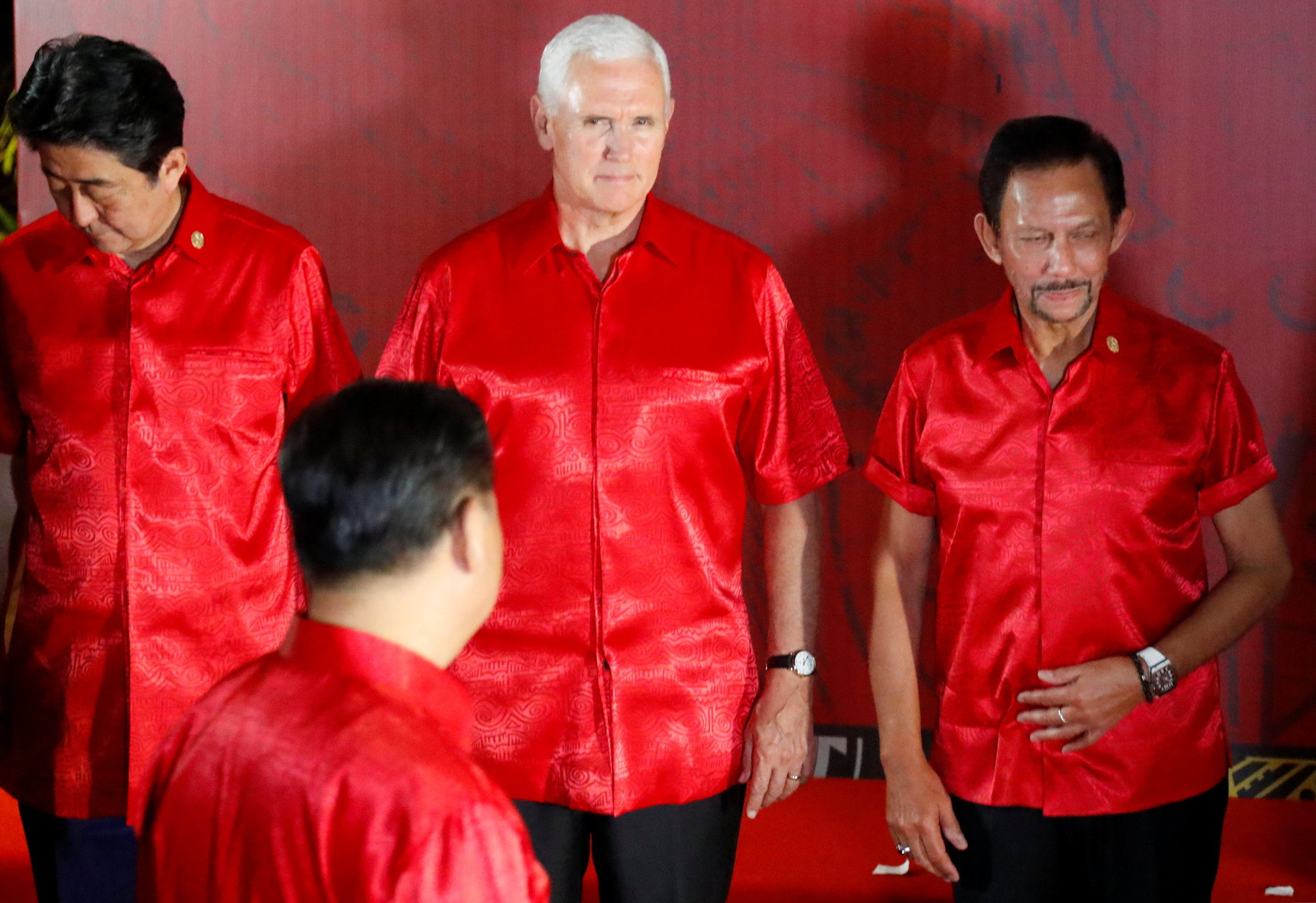Since the Soviet Union fell in the early 1990s, Southeast Asia has sought to avoid getting caught in a fight between major powers. The Trump administration is making that position look increasingly untenable.
Vice President Mike Pence sharpened U.S. attacks on China during a week of summits that ended Sunday, most notably with a call for nations to avoid loans that would leave them indebted to Beijing. He said the U.S. wasn't in a rush to end the trade war and would "not change course until China changes its ways" — a worrying prospect for a region heavily reliant on exports.
"The language we heard from Pence is quite concerning because it shows we're moving toward a zero-sum game geopolitics in the Asia-Pacific," said Jonathan Pryke, a researcher specializing in the Pacific at the Lowy Institute, a Sydney-based research group. "The great hope of convergence between China and the U.S. is becoming less and less of a likely reality."



















With your current subscription plan you can comment on stories. However, before writing your first comment, please create a display name in the Profile section of your subscriber account page.